In a digital era dominated by trends and centralized platforms, Pi Network stands apart with a philosophy rooted in independent innovation. As @Sanasticusman notes, “true change never comes from following the crowd.” This belief shapes Pi’s mission: to empower individuals to lead transformation through decentralization and creativity.
Breaking from Traditional Crypto Models
Most cryptocurrencies depend on speculative trading, energy-heavy mining, and systems that favor a privileged few. Pi Network challenges these patterns with a mobile-first, contribution-based system where users mine Picoin through participation and trust. With just a smartphone, anyone can join—removing technical and financial barriers.
Web3 and Digital Sovereignty
At its core, Pi is built on Web3 principles, which restore ownership of data, assets, and identity to users. Unlike Web2 platforms that profit from user behavior, Pi enables people to shape their digital experiences. With smart contracts, decentralized apps, and peer-to-peer validation, Pi creates a transparent, secure, and user-driven environment—more than just a technological shift, it’s a shift in power.
Picoin: A Currency of Contribution
Within the Pi ecosystem, Picoin is more than a token. It represents value earned through meaningful contributions validating transactions, inviting others, or participating in governance. Instead of chasing speculation, Pi rewards collaboration and shared purpose, making Picoin a symbol of trust, commitment, and community alignment.
Building a Movement, Not Just a Market
Pi Network is growing not through hype, but through grassroots momentum. From students to entrepreneurs, in cities and remote villages, adoption is spreading organically. This growth reflects people’s search for alternatives to outdated systems, and Pi answers with a platform where every user plays a role in shaping innovation.
Ethical Governance in the Digital Age
One of Pi’s defining strengths is its democratic approach to governance. Decisions are made collectively, with transparent participation in updates, policies, and community initiatives. This sets Pi apart from centralized platforms and creates a model for ethical digital leadership rooted in accountability.
The Challenges of Independent Innovation
Forging a unique path comes with hurdles. Pi must address skepticism, regulations, and the complexity of scaling decentralization. However, its phased strategy from testnet to mainnet shows a focus on stability and sustainability. Community feedback and iterative improvement remain central to building trust in a volatile industry.
Education and Empowerment
True decentralization requires more than technology it demands understanding. Pi invests in education, offering resources, forums, and multilingual guides to help users grasp blockchain, tokenomics, and digital sovereignty. By doing so, Pi ensures participation is both inclusive and transformative.
A Vision Beyond Cryptocurrency
Pi’s mission goes further than creating a coin. It envisions a future where digital systems are built on fairness, dignity, and contribution not exploitation. This includes expanding Picoin’s real world utility, fostering aligned partnerships, and strengthening its role in the Web3 economy.
Conclusion: Leading by Choosing a Different Path
Pi Network is proof that innovation thrives outside conformity. By refusing to follow the crowd, it challenges assumptions, redefines value, and empowers individuals to lead.
In a landscape filled with imitation, Pi offers clarity and originality. It invites pioneers to step into uncharted territory and co-create a digital future grounded in values and purpose.
As @Sanasticusman reminds us, real change begins when we choose to lead, not follow. Pi Network is more than a cryptocurrency—it’s a movement, a blueprint for transformation, and a testament to the power of independent innovation.




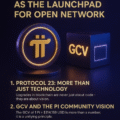

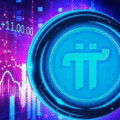



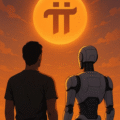


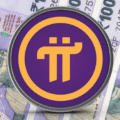





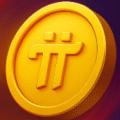



x3amww
xuljlc
9do6fl
fgcp79
Slot game tại 888slot được tối ưu hóa cho thiết bị di động: tải nhanh, tiêu tốn ít pin, hỗ trợ cảm ứng mượt mà và tương thích với cả mạng 3G/4G – chơi mọi lúc, mọi nơi mà không cần WiFi. TONY01-04H